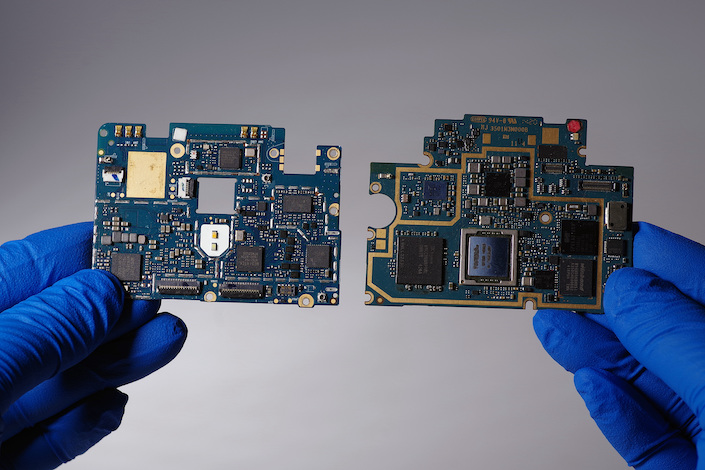Two Sessions 2021: China Targets Tech Self-Reliance With Massive Research Spend

Over the next five years, China plans to invest substantially more in research on basic technology. The March 5 draft of China’s 14th Five-Year Plan outlines a drive for self-reliance in science and technology.
The draft establishes three major indicators. From 2021 to 2025, China’s research and development (R&D) spending will increase by more than 7% a year. The number of high-value patents per 10,000 people will increase from 6.3 in 2020 to 12 in 2025. The added value of digital-economy core industry as a proportion of GDP will rise from 7.8% in 2020 to 10% in 2025.
The word “innovation” occurs frequently in China’s five-year plan for the second time. In the draft of the 14th Five-Year Plan, “Insisting on Innovation-Driven Development” was presented as the second chapter, underscoring its importance.
China set a target for annual economic growth of more than 6% for 2021 as the country continues its recovery from the Covid-19 pandemic, Premier Li Keqiang said Friday at the start of the annual meeting of the National People’s Congress (NPC) in Beijing.
Li said in the government work report that China’s central government outlays on basic research will increase by 10.6%, and research institutes will have more say in how funds should be used.
China will maintain a 75% tax deduction on enterprises’ R&D expenses, Li said. The tax deduction for R&D costs of manufacturing enterprises will be raised to 100% in 2021.
After the U.S. imposed sanctions on Huawei Technologies Co. Ltd. in 2019, company founder Ren Zhengfei repeatedly urged that China emphasize education and basic research. Ren told Caixin that Chinese scientific research is utilitarian and not sustainable, resulting in short-cycle industries with short-term outcomes.
Ren’s argument reflects the concerns of many entrepreneurs and scholars. According to the draft of the new five-year plan, China will increase the percentage of spending on basic research to more than 8% of all research outlays.
Read more
What’s In Store for China’s Economy in 2021
While increasing domestic investment, China hopes to continue participating in international cooperation. According to the draft, China plans to lead the development of major international scientific projects and support the establishment of international scientific and technological organizations. Foreign scientists are also encouraged to work in Chinese organizations.
China plans to establish a number of national laboratories in fields such as quantum information, photonics, micro-nano electronics, network communications, artificial intelligence, biomedicine and modern energy systems. China will also concentrate resources to study core technologies in prevention and control of infectious diseases, medicine and medical equipment, and oil and gas exploration.
China will also improve the evaluation system to encourage R&D by state-owned enterprises and support industry-leading enterprises to cooperate with scientific research institutes. For smaller enterprises, China will share government-funded scientific and technological advances.
To attract more talent, China will explore the establishment of a skilled immigration system and possibly grant the right to own or use scientific and technological achievements to researchers. China also plans to strengthen judicial protection and enforcement of intellectual property rights and increase fines for intellectual property infringements.
Read more about Caixin's coverage of China's Two Sessions 2021.
Contact editors Denise Jia (huijuanjia@caixin.com) and Bob Simison (bobsimison@caixin.com).
Download our app to receive breaking news alerts and read the news on the go.
Follow the Chinese markets in real time with Caixin Global’s new stock database.







